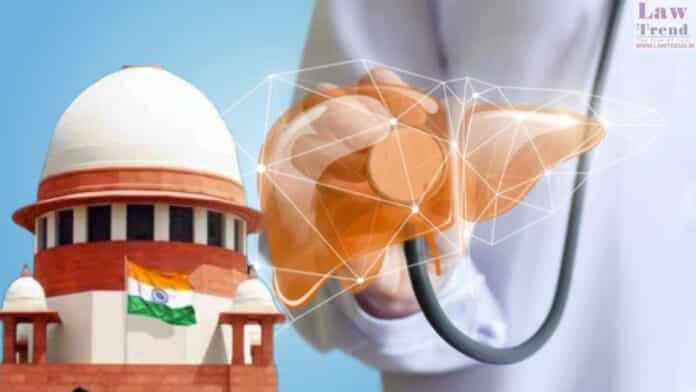The Supreme Court on Friday agreed to hear a petition challenging the validity of the provisions of the Transplantation of Human Organs and Tissues Rules, 2014 that require the consent of a near relative or person in lawful possession of the body before organs or tissues of a cadaver donor can be harvested.
The petition said as per the rules, consent was required despite the deceased donor having provided a valid authorisation during their lifetime.
The plea came up for hearing before a bench comprising Justices Sanjay Kishan Kaul and Sudhanshu Dhulia which issued notice and sought responses from the Centre and the National Organ and Tissue Transplant Organisation.
The petition has been filed by a minor, and the court had on October 20 asked advocate Gaurav Agrawal to assist it.
During the hearing on Friday, the bench asked why the petition was filed directly in the apex court under Article 32 of the Constitution.
Article 32 of the Constitution deals with remedies for enforcement of rights and 32 (1) says the right to move the apex court by appropriate proceedings for enforcement of rights conferred by this part is guaranteed.
“We get everything under (Article) 32. The negative aspect, I will tell you of it is we become the court of first instance,” Justice Kaul observed, adding, “If a high court applies its mind to it then the Supreme Court gets the benefit of the judgement”.
The bench asked why the issue being raised in the plea be not dealt with by a high court.
Later, the top court decided to hear the matter and issued notice on the petition.
In his note of submissions, the petitioner has said section 3(1) of the Transplantation of Human Organs and Tissues Act, 1994 (THOTA) permits a donor, before his death, to authorise the removal of his organ/tissue after he has passed away.
“This necessary authorisation is done in the manner contemplated in Form 7 under the rules in the presence of two or more witnesses (at least one of whom is a near relative of the donor),” it said.
Also Read
It said further, there was an added layer of Aadhaar based identification while pledging organs online.
“THOTA does not permit a relative to veto the consent given by the deceased donor during his lifetime. Hence, the impugned rules go far beyond the scope of THOTA and impose a further restriction on donation which is not required under THOTA,” it said.
The petitioner has said a near relative or person in lawful possession of the body should not be allowed to withhold the consent contrary to the wishes of the deceased donor.
“This writ petition challenges the constitutional validity of Rule 5(4)(a) and Rule 5(4)(b) of the Transplantation of Human Organs and Tissues Rules, 2014 to the extent that the said rules require the consent of ‘near relative or person in lawful possession of the body’ for removal of a donor’s organ or tissue after his or her death despite the fact that the deceased donor has provided a valid authorisation during its lifetime for donation of his/her organs,” it said.




